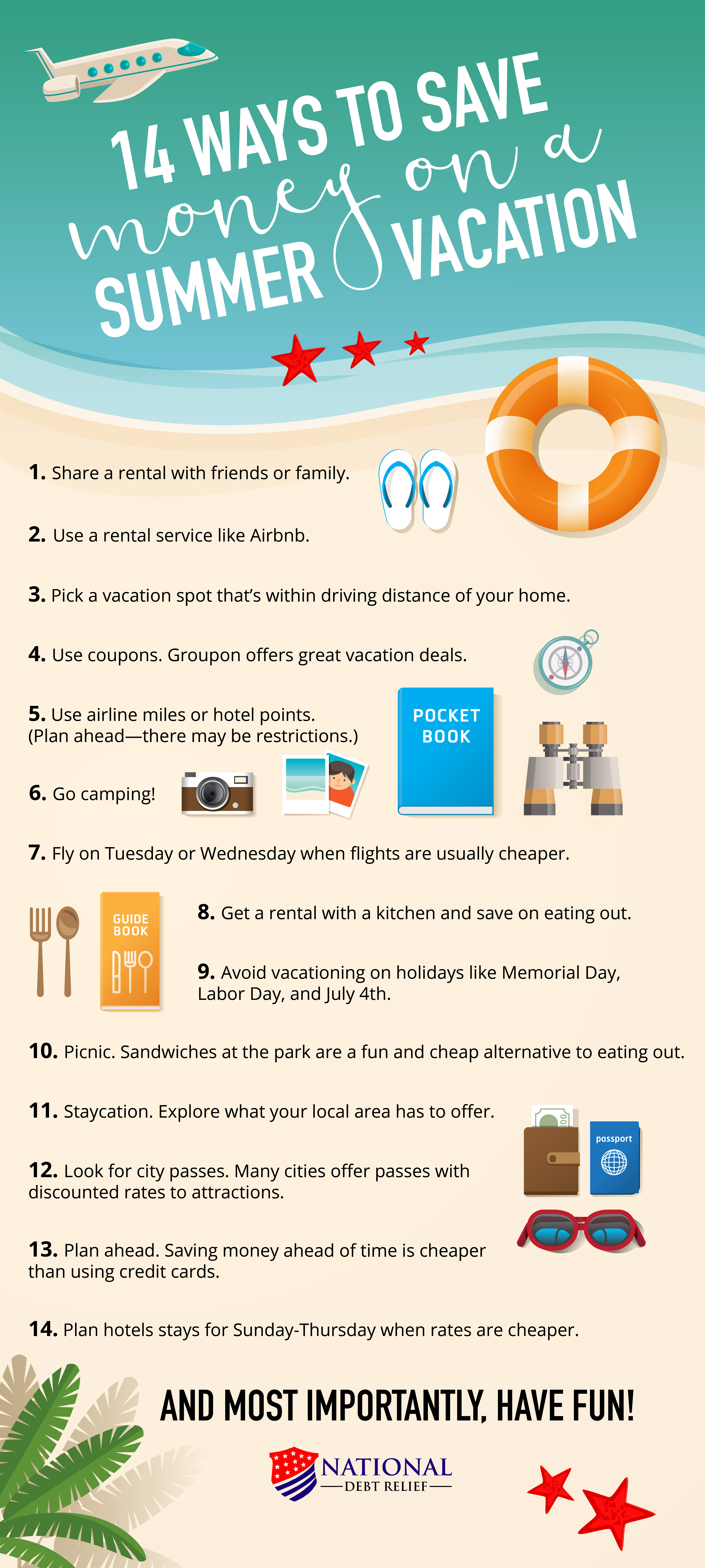Summer is a time for fun in the sun, right? But what if you’re a little strapped for cash, or worse, in debt?
Life shouldn’t come to a halt just because you are struggling with your finances. It’s important to learn how to enjoy yourself and experience life while also being smart about your money.
You don’t need to visit an expensive, all-inclusive resort to have a memorable summer vacation. The following infographic is full of helpful tips on how to be frugal during your time off.
There are lots of ways to save money on summer trips – you just have to know where to look.
Sun, sand, surf…and savings
Check out these tips to cut costs and save money on your next summer getaway.








